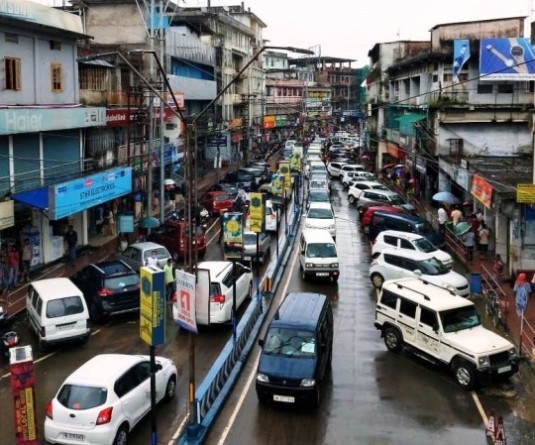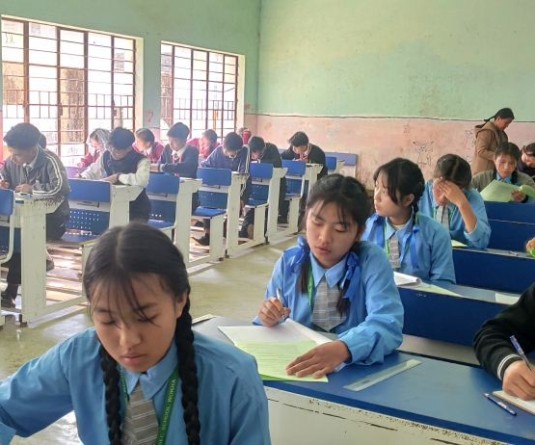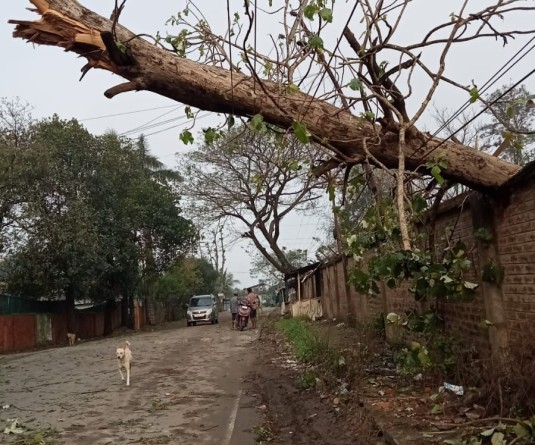
Morung Express News
Kohima | April 20
Successive governments in Nagaland have failed to acknowledge the importance of the power department, and often relegated the department in terms of budgetary provision, stated Er Shikatho Sema, President of the Association of Power Engineers Nagaland (APEN) today.
Speaking during the officers’ meeting cum felicitation program for new Advisor to the Power Department, Tovihoto Ayemi, he stated that “in Nagaland we are forced to maintain power supply with rarely any support from the government. With a meagre resource we have been managing on credit, beg and borrow for maintenance.”
Despite the neglect, Sema stated that the power department is the only department in the state which practically and physically goes to the premises of every single household, for metering and billing, for maintenance and technical operations. “It has access in every single town and village which requires constant operation and maintenance.”
He further stressed on the commercial aspect of the power sector, where revenue management involves billing, collection. "Power department is a single organisation managing two entities. If change is coming, together we can change,” remarked Sema.
Er Rokozhalie Angami, Chief Engineer (T&G) mentioned that the present peak demand of the State stands at about 150 MW. “Taking 15 percent aggregate annual load growth, the demand is exposed to touch 400 MW by the year 2025. This is a big challenge before the State Government and the power engineers,” said Angami. He urged that special and top priority be given to build up the requisite infrastructure in the generation, transmission and distribution sectors.
The Chief Engineer further informed that the 132/33 kV sub-station at Sanis with the transmission line connecting Doyang HE project and Wokha has been completed. With this, Kohima is now connected with an alternative source from the grid.
“The additional 4x8MVA 132/33 Sub-station at Kohima is in trial operation since December 22, 2017 till date. With this capacity addition Kohima district is now having stable power supply which otherwise was under load shedding inspite of power availability in the Grid. The State government has further considered the installation of 100MVA 132/33 transformer at Nagarjan Sub-station Dimapur. The transformer is expected to be delivered by the end of May this year,” he informed.
While the existing transmission line network is adequate as compared to other NE states, the challenge lies in overloaded and outdated EHV sub-stations which are unable to cater even the present demand.
On the operation and maintenance sector, Angami said that fund allocation over the past years has been insignificant. He rued that many major equipments in the sub-stations and the generating stations get damaged due to want of maintenance.
Advisor, Tovihoto Ayemi meanwhile assured his best efforts to improve and bring progress in the power sector. “This department is a major department and we must work out the best as to how we will progress, meet the demand of the public and provide the best service we can give to our people.”
During the program, awards were also given to the best meter readers and bill assistants in the districts. Mokokchung electricity division was awarded for best revenue performing division which achieved a revenue target of 86 percent while reducing its transmission and commercial losses to 40 percent.
Present system of governance outdated
Commissioner & Secretary, Power, KD Vizo meanwhile stated that the present governance system is outdated with hierarchical structures working from the top to bottom. “But the world is not like that now. There is a vast difference in countries because of the system. It is time we have to change the system. We should be prepared to change,” he said.
An important aspect for any organisation and department, according to Vizo, is the human factor. He urged the employees to inculcate team spirit, joint ventures and collaborative efforts. “A department like power demands a lot of professionalism, new skills, and we should also have the capability to understand the strategic issues for change. Know that we have a high social responsibility,” he concluded.





